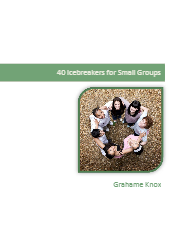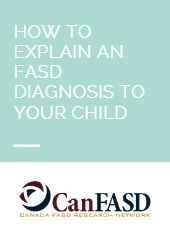Explore a wide range of psychosocial assessment tools and guides for adults and children. These resources offer step-by-step frameworks, templates, and practical examples to assist social workers, therapists, and mental health professionals in evaluating client needs. Covering key areas like family dynamics, mental health, education, and risk factors, they are designed to support accurate documentation, treatment planning, and client understanding. Whether addressing general assessments, self-harm, emergencies, or blended family dynamics, these free resources provide essential support for effective practice.
Social Work Psychosocial Assessment Guide, Questions & Example
This comprehensive set of infosheets breaks down the process of writing a psychosocial assessment, offering step-by-step guidance for social workers. It explains key components such as identifying information, presenting problems, family background, educational history, and clinical impressions. The guide provides practical examples, assessment framework, organisational tips, and advice on balancing objective facts with subjective impressions to ensure accurate and effective documentation. Designed to support case planning and client understanding, it is an essential tool for social workers managing complex client situations.

Psychosocial Assessment Template
This detailed assessment template from TherapistAid.com provides a structured format for gathering and documenting client information in a psychosocial evaluation. It covers key areas, including client demographics, presenting problems, personal and family history, mental and physical health, social and environmental factors, and strengths. The resource also includes sections for assessing risk, psychiatric history, and substance use, ensuring a comprehensive view of the client’s situation. Designed for therapists and social workers, this template aids in creating thorough, clear, and actionable assessments to guide treatment planning and support.

Headspace Psychosocial Assessment for Young People
This comprehensive guide provides a structured framework for assessing the psychosocial well-being of young people aged 12-25. Based on the expanded HEADS assessment model, it covers ten key domains, including home environment, education, relationships, mental health, substance use, and risk behaviours. The guide offers practical tips for building rapport, asking non-judgmental questions, and tailoring the approach to the developmental stage of the individual. It emphasises confidentiality, cultural sensitivity, and collaborative goal-setting, making it an essential tool for healthcare providers, social workers, and youth workers supporting young people through mental health and life challenges.

Triage Psychosocial Assessment
This detailed assessment template is designed for healthcare providers, social workers, and mental health professionals to comprehensively evaluate a client’s psychosocial history and current circumstances. It covers key areas such as family dynamics, relationship history, education, employment, financial situation, living arrangements, and cultural or spiritual beliefs. The tool also includes sections on abuse history, legal issues, and personal strengths or weaknesses, enabling practitioners to gather essential information for treatment planning. Structured for clarity and depth, this resource is an invaluable aid for building a complete understanding of a client’s background and needs.

Handbook on Psychosocial Assessment of Children in Emergencies
This comprehensive guide provides frameworks and tools for conducting psychosocial assessments of children and communities in emergency situations, such as natural disasters or armed conflicts. It emphasises community-centred approaches, cultural sensitivity, and the promotion of local resilience. Covering key phases of assessment—survival and protection, return to normalcy, and sustainable community well-being—it includes practical methodologies for data collection, coordination with local organisations, and ethical guidelines. Designed for NGOs, humanitarian workers, and government agencies, this handbook serves as an essential resource for addressing the psychosocial needs of children and families in crisis.

Psychosocial Assessment Following Self-Harm: A Clinician’s Guide
This guide, developed by experts at the University of Oxford and Oxford Health NHS Foundation Trust, provides comprehensive instructions for conducting psychosocial assessments following self-harm. It outlines the purpose, essential components, and practical strategies for assessments, addressing factors such as mental health, social circumstances, and risk assessment. The guide includes specialised sections for assessing vulnerable groups, such as adolescents, older adults, and neurodiverse individuals. With emphasis on empathy, trauma-informed care, and collaborative planning, this resource is essential for clinicians aiming to deliver effective support and safety planning for individuals in crisis.

An Ecological Framework for Psychosocial Child Assessment
This comprehensive manual by the United Nations Office on Drugs and Crime (UNODC) introduces a resilience-focused ecological framework for assessing children associated with armed, organised criminal, or terrorist groups. It provides a structured approach to understanding the individual, social, and systemic factors influencing a child’s rehabilitation and reintegration. Key features include child rights-based assessment principles, trauma-informed practices, and methods to identify protective factors. The guide also offers practical tools and strategies for conducting assessments in complex, high-risk contexts while promoting multi-agency collaboration. This resource is essential for professionals in justice, security, and child protection working to support vulnerable children.









